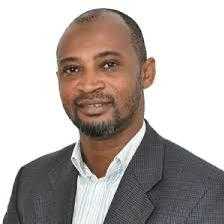Following the National Democratic Congress’s (NDC) recent promise of free academic fees for all first-year students, Dr. Abdul Samed Muntaka, a prominent youth advocate and researcher, has questioned the feasibility of this initiative.
Speaking in an interview , Dr. Muntaka emphasized the potential risks associated with delays in the government’s release of funds to universities, warning that such delays could lead to a crisis within these institutions.
Dr. Muntaka pointed out that universities heavily depend on the timely payment of first-year students’ fees to meet various operational needs.
“Continuing students often take time to pay their fees, so universities rely heavily on the money first-year students pay. While it’s not the only source of income for these institutions, it is a significant part because first-year students are required to pay full fees.
“The critical question is: how quickly will the government release these funds? And how will the implementation be structured? Will students need to register before the funds are released, or will the money be disbursed to universities ahead of student registration? This is where the real challenge lies. If these funds are delayed, universities could face serious crisis,” he explained.
Furthermore, Dr. Muntaka stressed that implementing such a policy would require substantial sacrifices, urging the NDC to prioritize the needs of the youth over political gains.
“To fund this policy, significant sacrifices will be necessary. We need to see fewer luxury vehicles like Land Cruisers, fewer allowances, and a reduction in waste within the system to generate the necessary funds to cover these fees. If the NDC is truly committed to this initiative, it’s a positive step forward.
“However, my concern is that this should not be a promise made solely to win votes. If promises are made with the sole intent of securing electoral support, it raises doubts about the commitment to actual implementation. The likelihood of failing to deliver on such promises becomes much higher,” Dr. Muntaka added.


